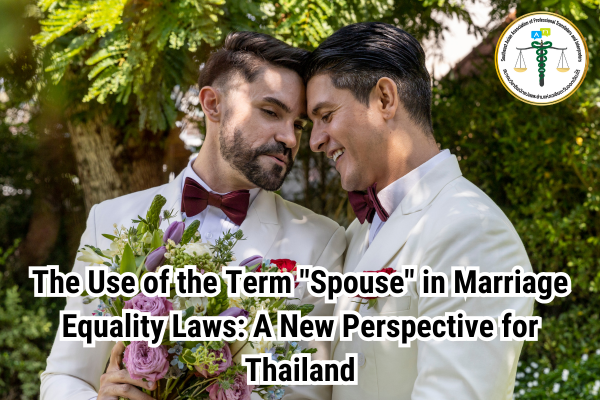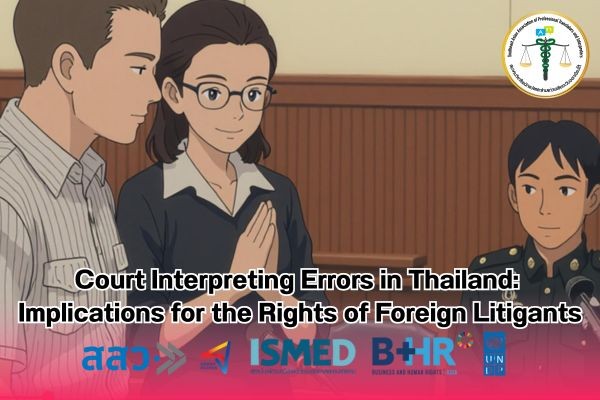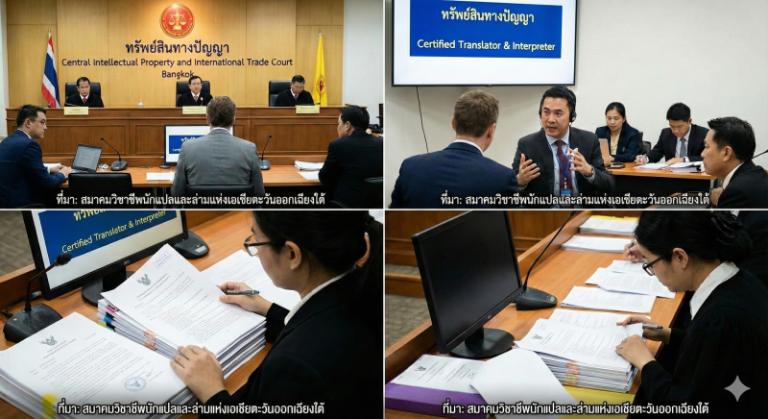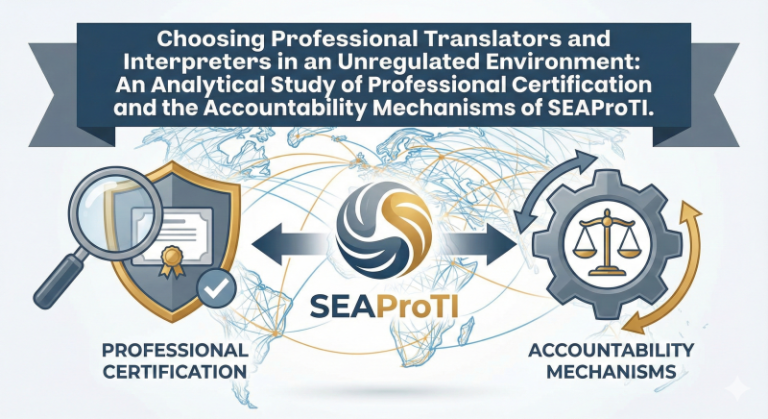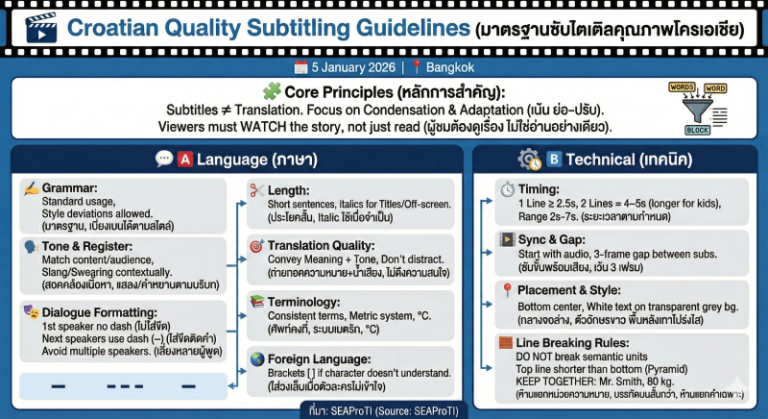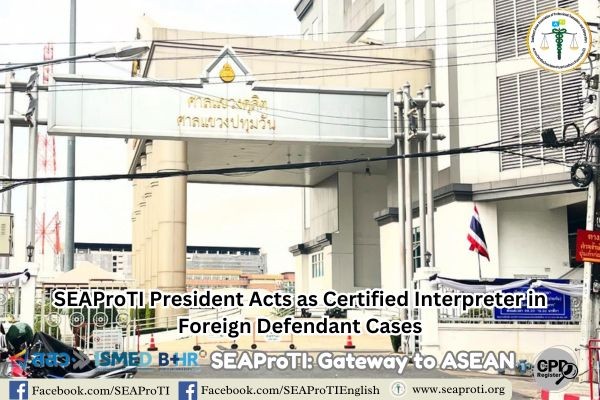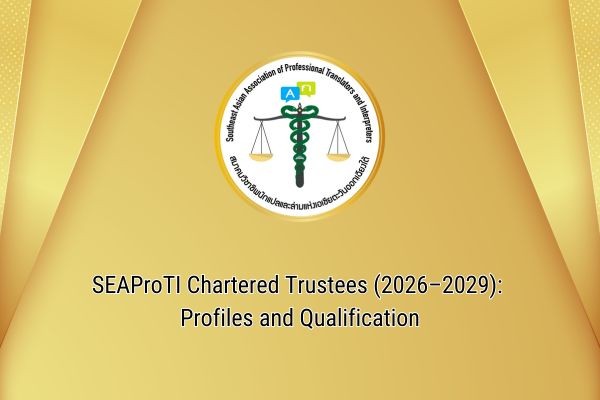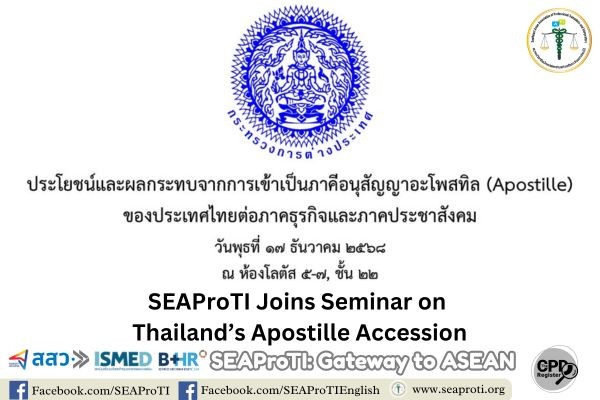The Use of the Term “Spouse” in Marriage Equality Laws:
A New Perspective for Thailand
9 January 2028, Bangkok – Thailand is stepping into a new era of gender equality with the anticipated implementation of marriage equality laws on January 23, 2025. This landmark change will allow LGBTQ+ couples to legally register their marriages, reflecting the nation’s progress in embracing sexual diversity. It also necessitates thoughtful consideration of the language used in related legal documents, particularly the term “spouse,” to align with the principles of equality and foster mutual understanding in Thai society.
The Importance of the Term “Spouse” in the Context of Marriage Equality Laws
In the context of marriage equality, the term “spouse” holds significant importance as it represents the legal status of individuals in a recognized relationship. Choosing the appropriate English equivalent for this term is essential, especially as Thailand develops new legal frameworks to ensure equal rights and responsibilities for LGBTQ+ couples, equivalent to those of heterosexual couples.
English Terms Related to Marriage Equality
-
Same-sex marriage
This is the most commonly used term, referring to marriages between same-sex couples. For example:“Thailand is set to begin performing same-sex marriages in January 2025.”
-
Marriage equality
This term shares the same meaning as same-sex marriage but emphasizes legal equality. For example:“Polls of the general public show that a majority support equal marriage.”
-
Equal marriage
This term highlights fairness and equality in marriage and is used in some countries. For example:“He argued that equal marriage legislation would create a more tolerant society.”
-
Gay marriage
Although widely used, this term may not encompass all groups within the LGBTQ+ community and should be used with caution. -
Marriage for all
This term is employed in some countries to denote marriage rights open to everyone, regardless of gender or sexual orientation.
Choosing the Term “Spouse” in English
-
“Spouse”
“Spouse” is a neutral term widely used in global legal contexts to denote a married partner without specifying gender. It is the most suitable term for legal use due to its clarity and international acceptance. For example:“Both spouses have equal rights and obligations under the law.”
-
“Marital Partner”
This term emphasizes the partnership created by marriage. It is suitable for contexts that highlight the legal status of married individuals. For example:“Each marital partner is entitled to inheritance rights.”
-
“Married Couple”
This term is suitable for general contexts referring to couples as a unit but is less appropriate for legal contexts that address individual rights and responsibilities. For example, managing assets or child custody. Thus, it is more suitable for informal contexts.
The Importance of Gender-Neutral Language
One of the primary goals of marriage equality laws is to remove linguistic and cultural barriers that may lead to gender-based discrimination. Using gender-neutral terms like “spouse” is crucial as it can represent all types of married partners without limitation by gender or identity. It also reduces stigma that might arise in legal processes, such as filling out forms, filing petitions, or granting rights.
The Role of SEAProTI-Certified Translators and Interpreters
In the context of marriage equality, SEAProTI-certified translators and interpreters play a crucial role in ensuring clear and accurate communication for individuals navigating legal marriage processes. Their expertise is particularly beneficial in the following ways:
-
Translation of Legal Documents: Certified translators can accurately translate marriage certificates, pre-nuptial agreements, and other legal documents required for marriage registration, ensuring compliance with legal standards in multiple languages.
-
Facilitating Multinational Marriages: For couples from different linguistic or cultural backgrounds, interpreters can bridge language barriers during legal consultations, wedding ceremonies, and other official proceedings.
-
Ensuring Clarity in Legal Rights: Translators and interpreters help convey the specifics of legal rights and obligations in the marriage equality framework, reducing misunderstandings and ensuring that both parties fully understand their commitments.
-
Support for LGBTQ+ Advocacy: Their involvement contributes to fostering inclusivity by promoting access to legal processes for all individuals, regardless of language proficiency or cultural background.
By providing these services, SEAProTI-certified professionals enhance the accessibility and fairness of marriage equality laws, ensuring that all individuals can exercise their rights without linguistic obstacles.
Challenges in Adapting Language in Thai Society
Adapting language for marriage equality laws may face challenges as some terms carry deep cultural and traditional meanings in Thailand. However, choosing appropriate terms, such as “spouse” in Thai and “spouse” in English, exemplifies the effort to bridge universal and Thai cultural understanding.
Social and Cultural Impacts
The acceptance and implementation of marriage equality laws in Thailand will have widespread social and cultural impacts. These include promoting gender equality, reducing discrimination, and advocating for human rights. This change could also inspire other countries in Southeast Asia that have yet to implement similar legislation.
Additionally, the proper use of the term “spouse” in documents and discussions about LGBTQ+ rights will help minimize confusion and feelings of inequality among those previously excluded from the legal framework. This adjustment reflects Thailand’s commitment to developing a society where everyone has equal rights, regardless of gender or sexual orientation.
Conclusion
On January 23, 2025, Thailand’s authorization of LGBTQ+ couples to register their marriages will mark a significant step towards equality and acceptance of sexual diversity. The use of the term “spouse” in marriage equality laws is essential to creating clarity and inclusiveness for couples of all genders. The term “spouse” not only reflects international gender equality standards but also supports positive social change in Thailand.
It is hoped that marriage equality laws will be the beginning of creating a society that genuinely respects and recognizes human rights. Using inclusive and gender-neutral language in the law will be a key tool to achieve this sustainable goal. SEAProTI-certified translators and interpreters will play an indispensable role in this journey by ensuring linguistic inclusivity and supporting equitable access to the legal rights associated with marriage.
About SEAProTI’s certified translators, translation certification providers, and certified interpreters:
The Southeast Asian Association of Professional Translators and Interpreters (SEAProTI) has officially announced the criteria and qualifications for individuals to register as “Certified Translators,” “Translation Certification Providers,” and “Certified Interpreters” under the association’s regulations. These guidelines are detailed in Sections 9 and 10 of the Royal Thai Government Gazette, issued by the Secretariat of the Cabinet under the Office of the Prime Minister of the Kingdom of Thailand, dated July 25, 2024, Volume 141, Part 66 Ng, Page 100.
To read the full publication, visit: the Royal Thai Government Gazette
การใช้คำว่า “คู่สมรส” ในกฎหมายสมรสเท่าเทียม: มุมมองใหม่สำหรับประเทศไทย
9 มกราคม 2568, กรุงเทพมหานคร – ประเทศไทยกำลังก้าวเข้าสู่ยุคใหม่ของความเท่าเทียมทางเพศ ด้วยการเตรียมประกาศใช้กฎหมายสมรสเท่าเทียมในวันที่ 23 มกราคม 2568 การเปลี่ยนแปลงครั้งสำคัญนี้จะเปิดโอกาสให้คู่รัก LGBTQ+ สามารถจดทะเบียนสมรสได้อย่างถูกต้องตามกฎหมาย สะท้อนถึงความก้าวหน้าของประเทศในการยอมรับความหลากหลายทางเพศ และยังจำเป็นต้องพิจารณาการใช้ภาษาที่เหมาะสมในเอกสารทางกฎหมาย โดยเฉพาะคำว่า “คู่สมรส” เพื่อให้สอดคล้องกับหลักการแห่งความเท่าเทียมและสร้างความเข้าใจร่วมกันในสังคมไทย
ความสำคัญของคำว่า “คู่สมรส” ในบริบทของกฎหมายสมรสเท่าเทียม
ในบริบทของกฎหมายสมรสเท่าเทียม คำว่า “คู่สมรส” มีความสำคัญอย่างยิ่ง เนื่องจากเป็นคำที่แสดงถึงสถานะทางกฎหมายของบุคคลในความสัมพันธ์ที่ได้รับการรับรอง การเลือกใช้คำที่เหมาะสมในภาษาอังกฤษจึงเป็นเรื่องสำคัญ โดยเฉพาะเมื่อประเทศไทยกำลังพัฒนากรอบกฎหมายใหม่เพื่อรับรองสิทธิและหน้าที่ที่เท่าเทียมกันสำหรับคู่รัก LGBTQ+ เช่นเดียวกับคู่รักต่างเพศ
คำศัพท์ภาษาอังกฤษที่เกี่ยวข้องกับสมรสเท่าเทียม
-
Same-sex marriage
คำนี้ใช้กันอย่างแพร่หลาย หมายถึงการสมรสระหว่างคู่รักเพศเดียวกัน ตัวอย่าง:“ประเทศไทยเตรียมเริ่มอนุญาตให้มีการสมรสของคู่รักเพศเดียวกันในเดือนมกราคม 2025”
-
Marriage equality
มีความหมายเช่นเดียวกับ same-sex marriage แต่เน้นย้ำถึงความเท่าเทียมทางกฎหมาย ตัวอย่าง:“ผลสำรวจความคิดเห็นของประชาชนทั่วไปแสดงให้เห็นว่าส่วนใหญ่สนับสนุนสมรสเท่าเทียม”
-
Equal marriage
คำนี้เน้นถึงความเสมอภาคในการสมรส ใช้ในบางประเทศ ตัวอย่าง:“เขาให้เหตุผลว่ากฎหมายสมรสเท่าเทียมจะสร้างสังคมที่มีความอดทนมากขึ้น”
-
Gay marriage
แม้จะใช้กันทั่วไป แต่คำนี้อาจไม่ครอบคลุมถึงกลุ่ม LGBTQ+ ทุกกลุ่ม จึงควรใช้อย่างระมัดระวัง -
Marriage for all
คำนี้ใช้ในบางประเทศเพื่อสื่อถึงสิทธิในการสมรสที่เปิดกว้างสำหรับทุกคนโดยไม่จำกัดเพศหรือเพศสภาพ
การเลือกใช้คำว่า “คู่สมรส” ในภาษาอังกฤษ
-
“Spouse”
“Spouse” เป็นคำกลางที่ใช้กันในบริบททางกฎหมายทั่วโลก หมายถึงคู่สมรสโดยไม่ระบุเพศ เป็นคำที่เหมาะสมที่สุดสำหรับใช้ในกฎหมาย เนื่องจากมีความชัดเจนและได้รับการยอมรับในระดับสากล ตัวอย่าง:“คู่สมรสทั้งสองมีสิทธิและหน้าที่เท่าเทียมกันตามกฎหมาย”
-
“Marital Partner”
คำนี้เน้นถึงความเป็นหุ้นส่วนในความสัมพันธ์ทางการสมรส เหมาะสำหรับบริบทที่ต้องการระบุสถานะทางกฎหมายของคู่สมรส ตัวอย่าง:“หุ้นส่วนในชีวิตสมรสแต่ละคนมีสิทธิในทรัพย์สินมรดก”
-
“Married Couple”
คำนี้เหมาะสำหรับบริบททั่วไปที่กล่าวถึงคู่สมรสในฐานะกลุ่มสองคน แต่ไม่เหมาะสำหรับบริบททางกฎหมายที่เกี่ยวข้องกับสิทธิและหน้าที่ของแต่ละบุคคล ตัวอย่างเช่น การจัดการทรัพย์สินหรือการดูแลบุตร จึงควรใช้ในบริบทที่ไม่เป็นทางการ
ความสำคัญของภาษาที่เป็นกลางทางเพศ
หนึ่งในเป้าหมายหลักของกฎหมายสมรสเท่าเทียมคือการขจัดอุปสรรคทางภาษาและวัฒนธรรมที่อาจนำไปสู่การเลือกปฏิบัติทางเพศ การใช้คำที่เป็นกลางทางเพศจึงมีความสำคัญ เช่น คำว่า “Spouse” ที่สามารถแทนคู่สมรสทุกประเภทได้โดยไม่จำกัดเพศหรืออัตลักษณ์ทางเพศ คำนี้ยังช่วยลดการตีตราที่อาจเกิดขึ้นในกระบวนการทางกฎหมาย เช่น การกรอกเอกสาร การยื่นคำร้อง หรือการให้สิทธิ์ต่างๆ
บทบาทของนักแปลและล่ามรับรองของ SEAProTI
ในบริบทของสมรสเท่าเทียม นักแปลและล่ามรับรองที่ผ่านการรับรองจาก SEAProTI มีบทบาทสำคัญในการช่วยให้การสื่อสารระหว่างบุคคลในกระบวนการสมรสถูกต้องและชัดเจน ความเชี่ยวชาญของพวกเขามีประโยชน์ในด้านต่างๆ ดังนี้:
-
การแปลเอกสารทางกฎหมาย: นักแปลที่ได้รับการรับรองสามารถแปลเอกสารสำคัญ เช่น ทะเบียนสมรส ข้อตกลงก่อนสมรส และเอกสารอื่นๆ ได้อย่างถูกต้องตามมาตรฐานกฎหมายในหลายภาษา
-
การสนับสนุนการสมรสข้ามชาติ: สำหรับคู่รักที่มาจากวัฒนธรรมและภาษาที่ต่างกัน ล่ามสามารถช่วยลดอุปสรรคด้านภาษาในระหว่างการปรึกษากฎหมาย พิธีแต่งงาน และขั้นตอนทางการอื่นๆ
-
การอธิบายสิทธิตามกฎหมาย: นักแปลและล่ามช่วยอธิบายรายละเอียดของสิทธิและหน้าที่ตามกรอบกฎหมายสมรสเท่าเทียมอย่างชัดเจน เพื่อลดความเข้าใจผิดและทำให้คู่รักเข้าใจข้อผูกพันอย่างถ่องแท้
-
สนับสนุนการส่งเสริมสิทธิ LGBTQ+: การมีส่วนร่วมของนักแปลและล่ามรับรองช่วยส่งเสริมการเข้าถึงกระบวนการทางกฎหมายสำหรับทุกคน โดยไม่คำนึงถึงความสามารถทางภาษา
บริการเหล่านี้จากผู้เชี่ยวชาญของ SEAProTI ช่วยเสริมความเป็นธรรมและความเข้าถึงของกฎหมายสมรสเท่าเทียม ทำให้ทุกคนสามารถใช้สิทธิของตนได้อย่างเต็มที่โดยไม่มีอุปสรรคทางภาษา
ความท้าทายในการปรับเปลี่ยนภาษาในสังคมไทย
การปรับภาษาให้เหมาะสมกับกฎหมายสมรสเท่าเทียมอาจเผชิญกับความท้าทาย เนื่องจากบางคำมีความหมายที่ฝังลึกในวัฒนธรรมและประเพณีไทย อย่างไรก็ตาม การเลือกใช้คำที่เหมาะสม เช่น “คู่สมรส” ในภาษาไทย และ “Spouse” ในภาษาอังกฤษ เป็นตัวอย่างของการสร้างสะพานเชื่อมระหว่างความเป็นสากลและความเป็นไทย
ผลกระทบทางสังคมและวัฒนธรรม
การยอมรับและบังคับใช้กฎหมายสมรสเท่าเทียมในประเทศไทยจะส่งผลกระทบต่อสังคมและวัฒนธรรมในวงกว้าง รวมถึงการส่งเสริมความเท่าเทียมทางเพศ การลดการเลือกปฏิบัติ และการสนับสนุนสิทธิมนุษยชน การเปลี่ยนแปลงนี้ยังช่วยสร้างแรงบันดาลใจให้ประเทศอื่นๆ ในภูมิภาคเอเชียตะวันออกเฉียงใต้ที่ยังไม่มีการบังคับใช้กฎหมายลักษณะนี้
นอกจากนี้ การใช้คำว่า “คู่สมรส” อย่างเหมาะสมในเอกสารและการสนทนาเกี่ยวกับสิทธิของ LGBTQ+ จะช่วยลดความสับสนและความรู้สึกไม่เท่าเทียมในกลุ่มคนที่เคยถูกกีดกันจากระบบกฎหมายเดิม การเปลี่ยนแปลงนี้สะท้อนถึงความมุ่งมั่นของประเทศไทยในการพัฒนาสังคมที่ทุกคนมีสิทธิเท่าเทียมกันโดยไม่คำนึงถึงเพศหรือรสนิยมทางเพศ
บทสรุป
ในวันที่ 23 มกราคม 2568 การอนุญาตให้คู่รัก LGBTQ+ จดทะเบียนสมรสในประเทศไทยจะเป็นก้าวสำคัญที่สะท้อนถึงความเท่าเทียมและการยอมรับในความหลากหลายทางเพศ การเลือกใช้คำว่า “คู่สมรส” ในกฎหมายสมรสเท่าเทียมจึงมีความสำคัญอย่างยิ่งในการสร้างความชัดเจนและครอบคลุมสำหรับคู่รักทุกเพศ คำว่า “Spouse” ไม่เพียงแต่สะท้อนถึงมาตรฐานความเท่าเทียมทางเพศในระดับสากล แต่ยังสนับสนุนการเปลี่ยนแปลงในเชิงบวกในสังคมไทย
เราหวังว่ากฎหมายสมรสเท่าเทียมจะเป็นจุดเริ่มต้นของการสร้างสังคมที่ยอมรับและเคารพในสิทธิมนุษยชนอย่างแท้จริง การใช้ภาษาที่ครอบคลุมและเป็นกลางทางเพศในกฎหมายจะเป็นเครื่องมือสำคัญในการสนับสนุนเป้าหมายนี้ให้เกิดขึ้นอย่างยั่งยืน โดยมีนักแปลและล่ามรับรองของ SEAProTI เป็นส่วนหนึ่งที่ช่วยผลักดันให้เกิดความเท่าเทียมทางภาษาและการเข้าถึงสิทธิที่เท่าเทียมของทุกคน
เกี่ยวกับนักแปลรับรอง ผู้รับรองการแปล และล่ามรับรองของสมาคมวิชาชีพนักแปลและล่ามแห่งเอเชียตะวันออกเฉียงใต้
สมาคมวิชาชีพนักแปลและล่ามแห่งเอเชียตะวันออกเฉียงใต้ (SEAProTI) ได้ประกาศหลักเกณฑ์และคุณสมบัติผู้ที่ขึ้นทะเบียนเป็น “นักแปลรับรอง (Certified Translators) และผู้รับรองการแปล (Translation Certification Providers) และล่ามรับรอง (Certified Interpreters)” ของสมาคม หมวดที่ 9 และหมวดที่ 10 ในราชกิจจานุเบกษา ของสำนักเลขาธิการคณะรัฐมนตรี ในสำนักนายกรัฐมนตรี แห่งราชอาณาจักรไทย ลงวันที่ 25 ก.ค. 2567 เล่มที่ 141 ตอนที่ 66 ง หน้า 100 อ่านฉบับเต็มได้ที่: นักแปลรับรอง ผู้รับรองการแปล และล่ามรับรอง


